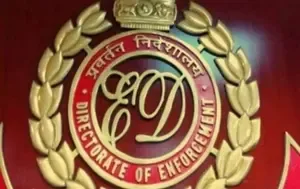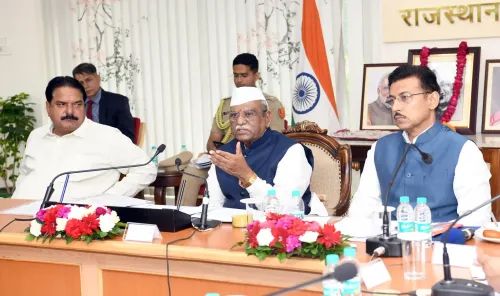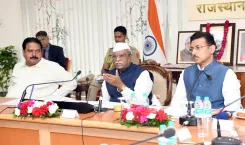ED Seizes Assets in Transstroy India Bank Fraud Investigation

Hyderabad, Dec 24 (NationPress) The Enforcement Directorate’s Hyderabad division has provisionally seized immovable assets totaling Rs.48.71 crore as part of a bank fraud inquiry involving Transstroy India Ltd. (TIL) and various associated entities.
The agency announced on Tuesday that these assets, consisting of land and residential properties, were attached under the Prevention of Money Laundering Act (PMLA), 2002.
In August of the previous year, the ED executed searches at TIL's premises, a firm owned by former MP and prominent Telugu Desam Party (TDP) figure Rayapati Sambasiva Rao, as part of an investigation into a money laundering scheme involving a loan fraud valued at Rs.7,926 crore.
This case is regarded as one of the largest loan frauds in India, where the company acquired loans from Canara Bank and 13 other banking institutions.
The ED has conducted raids at the residences and offices of Rayapati and other key players at nine different sites, including Hyderabad and Guntur. The investigation was initiated based on an FIR filed by the Central Bureau of Investigation (CBI), leading to charges that the accused misappropriated borrowed funds to affiliated firms, shell companies, and other organizations.
In 2020, the CBI in Bengaluru lodged an FIR against TIL, its CMD Cherukuri Sridhar, former MP Sambasiva Rao, Akkineni Satish, and others for offenses including criminal conspiracy, fraud, forgery, document falsification, and breaches of the Prevention of Corruption Act. The loans were sourced from a consortium of banks such as Canara Bank, Central Bank of India, Union Bank of India, Corporation Bank, Andhra Bank, Allahabad Bank, Bank of India, United Bank of India, UCO Bank, Bank of Maharashtra, South India Bank, Dena Bank, and Vijaya Bank during 2013 and 2014.
The loan accounts devolved into NPA status due to alleged misconduct by the company, including frequent Letters of Credit devolvement, non-payment of interest concerning working capital limits, and failure to route operations via consortium banks.









